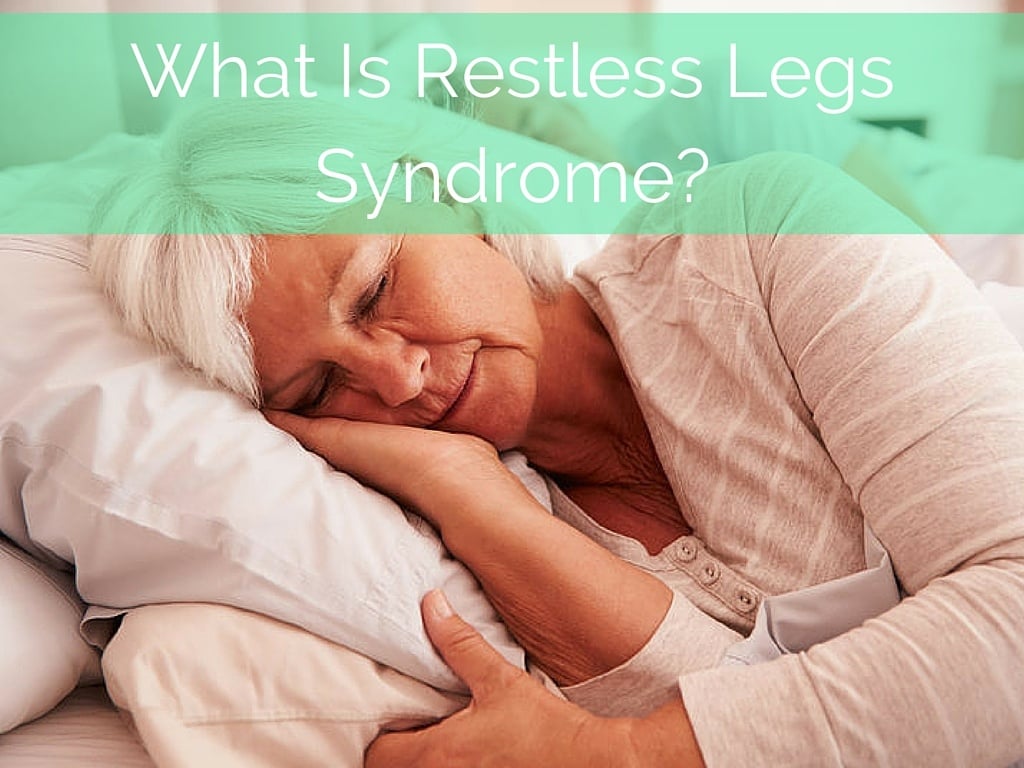
As we all age, our bodies, as well as our daily routines, change. Many older adults go through bouts of insomnia and other sleep disruptions. Seniors can usually make small adjustments to their lives to help minimize these interruptions, and maintain the high-quality sleep important for an active lifestyle. But if the cause of a senior's sleepless nights is Restless Leg Syndrome (RLS), it may be time for a talk with a senior care medical specialist.
What is Restless Leg Syndrome?
RLS, also known as Willis-Ekbom Disease, is a disorder associated with the nervous system. People who are diagnosed with RLS often describe aching, itching, burning, or tingling sensations in their legs, and sometimes even in their arms. It is common for people with RLS to develop these sensations during periods of low activity, and the frequency and severity of symptoms usually increase at night. RLS suffers typically experience an uncontrollable urge to move the afflicted limbs to rid themselves of these uncomfortable feelings.
RLS can play havoc with a senior's sleep schedule, cause pain, and decrease overall quality of life.
What causes RLS?
It is believed that around 10% of the population has some sort of RLS, but not all causes of the disorder are fully understood. Medical professionals have divided RLS into two types: primary and secondary.
Cases of Primary RLS have unknown causes, but are believed to be tied to hereditary factors. Primary RLS typically begins before middle age and represent the greatest number of RLS diagnoses. The frequency and severity of primary RLS often increases with time.
Secondary RLS usually develops later in life and is associated with a variety of health factors, including: Diabetes, kidney disease, Parkinson's disease, rheumatoid arthritis, and iron deficiency. The symptoms associated with Secondary RLS tend to be more severe and frequent from the onset of the condition than those experienced with Primary RLS.
How Is RLS Treated?
There are many ways to ease the symptoms of RLS. Many seniors find at least some relief from OTC medication and home remedies. Some suffers of RLS find a solution to their discomfort with:
- Ibuprofen for mild cases
- Stretching, yoga, and Tai Chi
- Hot baths
- Massages
- Eliminating caffeine, alcohol and tobacco consumption
More severe symptoms associated with RLS are also often successfully treated with medication. When a senior health care professional chooses to prescribe medication, there are four major categories of drugs that are typically ordered:
- Drugs which increase dopamine. These types of medications are often used in severe cases of RLS. Brands such as Neupro and Requip are examples of commonly prescribed drugs from this category, but may have side effects like the development of poor impulse control in users.
- Prescription narcotics. The use of opioids, such as Oxycontin and Percocet, can help relieve mild to more severe symptoms, but there is a chance of a person becoming addicted to the medication if used for long periods of time at higher doses.
- Calcium-controlling medication. When improper levels of calcium in the body are responsible for RLS, doctors can prescribe Neutontin or Lyrica to help provide relief.
- Benzodiazepines. These medications help to relax muscles to promote better sleep, though these drugs do not eliminate symptoms. Ambien and Lunesta are commonly prescribed for RLS, but can cause users to be sleepy throughout the day.
If an elderly parent begins to show symptoms of RLS, encourage him or her to speak with a health care provider as soon as possible, but be aware that taking any medication could have side effects and could even cause an increase in symptoms. Talk with your parent's doctor before he or she begins a new prescription so that you know what to expect.












